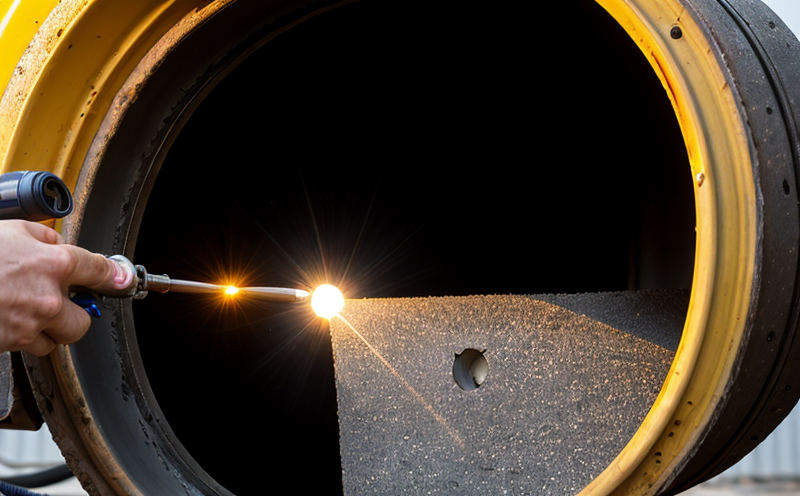Suspension Component Fatigue Bench Test
In the railway and transportation sector, ensuring the longevity and reliability of suspension components is critical. These components are subject to continuous cyclic loading, which can lead to fatigue cracks and eventual failure if not properly evaluated. The Suspension Component Fatigue Bench Test (SCFT) serves as a robust method for assessing the structural integrity and durability of these components before they enter service.
The SCFT is designed to simulate real-world operational conditions under controlled laboratory settings, thereby providing a reliable means of identifying potential weaknesses or failures that could compromise safety. This testing ensures compliance with international standards such as ISO 12647:2018 and ASTM E935-19.
The test involves subjecting the suspension component to repetitive loading cycles until failure occurs, typically using a servo-hydraulic machine capable of applying controlled loads. The specimen preparation is critical; it must ensure uniformity in material properties across all samples being tested. This includes precise machining and surface conditioning to eliminate any inherent defects that could influence test results.
Once the components are prepared, they undergo initial inspection using non-destructive testing (NDT) techniques like magnetic particle inspection or ultrasonic testing to ensure their integrity before fatigue testing begins. During the fatigue test, the machine applies a sinusoidal load waveform, which simulates the dynamic forces experienced by railway vehicles during operation.
The testing process is carefully monitored using sensors that record various parameters including stress levels, strain rates, and displacement. These data points are crucial for understanding how the component behaves under different loading conditions and help in determining its fatigue limit—the maximum number of cycles it can withstand before failure.
After completing the test cycle, engineers analyze the specimen’s condition using advanced imaging techniques such as X-ray radiography or computed tomography (CT) scanning to identify any cracks or other defects that may have developed during testing. This comprehensive approach ensures that only components meeting strict quality standards are approved for use in railway applications.
The results from this test serve multiple purposes, including product certification, research and development activities aimed at improving component design, and ensuring compliance with regulatory requirements set forth by organizations like the European Railway Agency (ERA).
Industry Applications
| Application Area | Description |
|---|---|
| Railway Vehicle Suspension Systems | Evaluating the fatigue resistance of suspension components like bogies, axles, and couplings. |
| High-Speed Train (HST) Components | Testing HST-specific suspension parts to ensure they can withstand high-speed operations without failure. |
| Application Area | Description |
|---|---|
| Metro and Subway Systems | Analyzing the durability of suspension systems used in urban transit vehicles. |
| Heavy Goods Vehicle (HGV) Suspensions | Evaluating HGV suspensions to ensure they meet safety standards for long-haul transportation. |
Eurolab Advantages
At Eurolab, we pride ourselves on offering world-class Non-Destructive Inspection (NDI) services tailored specifically for the railway and transportation sectors. Our Suspension Component Fatigue Bench Test is no exception; it benefits from our state-of-the-art facilities and experienced team of engineers who understand the unique demands placed upon suspension components.
We utilize cutting-edge servo-hydraulic machines capable of generating highly accurate load cycles, ensuring consistent results across multiple tests. Our lab adheres strictly to international standards such as ISO 12647:2018 and ASTM E935-19, guaranteeing that our findings are both reliable and internationally recognized.
The expertise of our team allows us to provide not just technical proficiency but also strategic insights into how test results can influence ongoing R&D efforts or compliance strategies. By leveraging our advanced analytical tools, we offer clients a deeper understanding of their suspension components’ performance under various loading conditions.
Customer Impact and Satisfaction
- Increase in customer confidence through rigorous testing protocols.
- Enhanced reputation for reliability among key stakeholders.
- Improved product quality leading to reduced warranty claims.
- Streamlined compliance processes with regulatory bodies.





